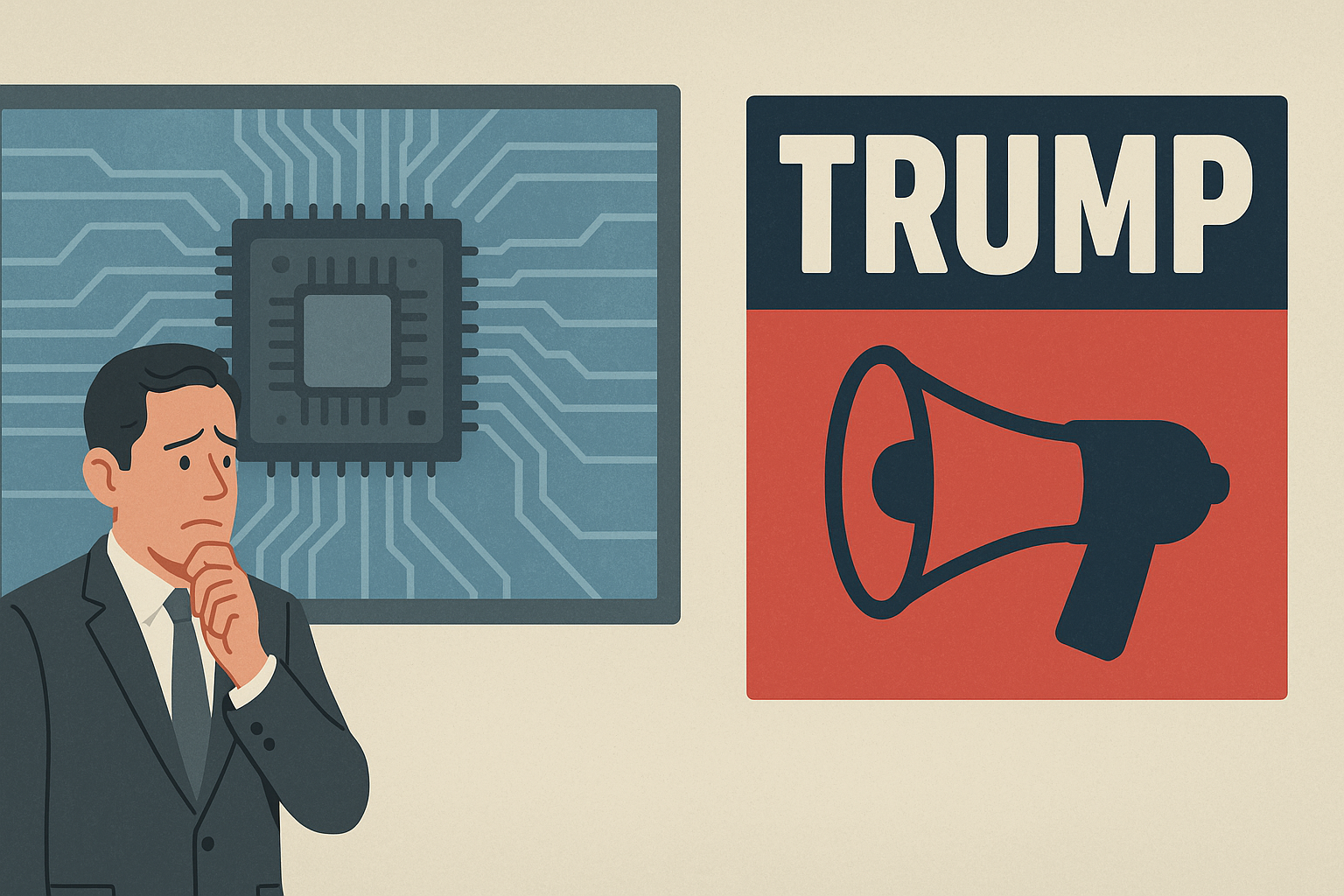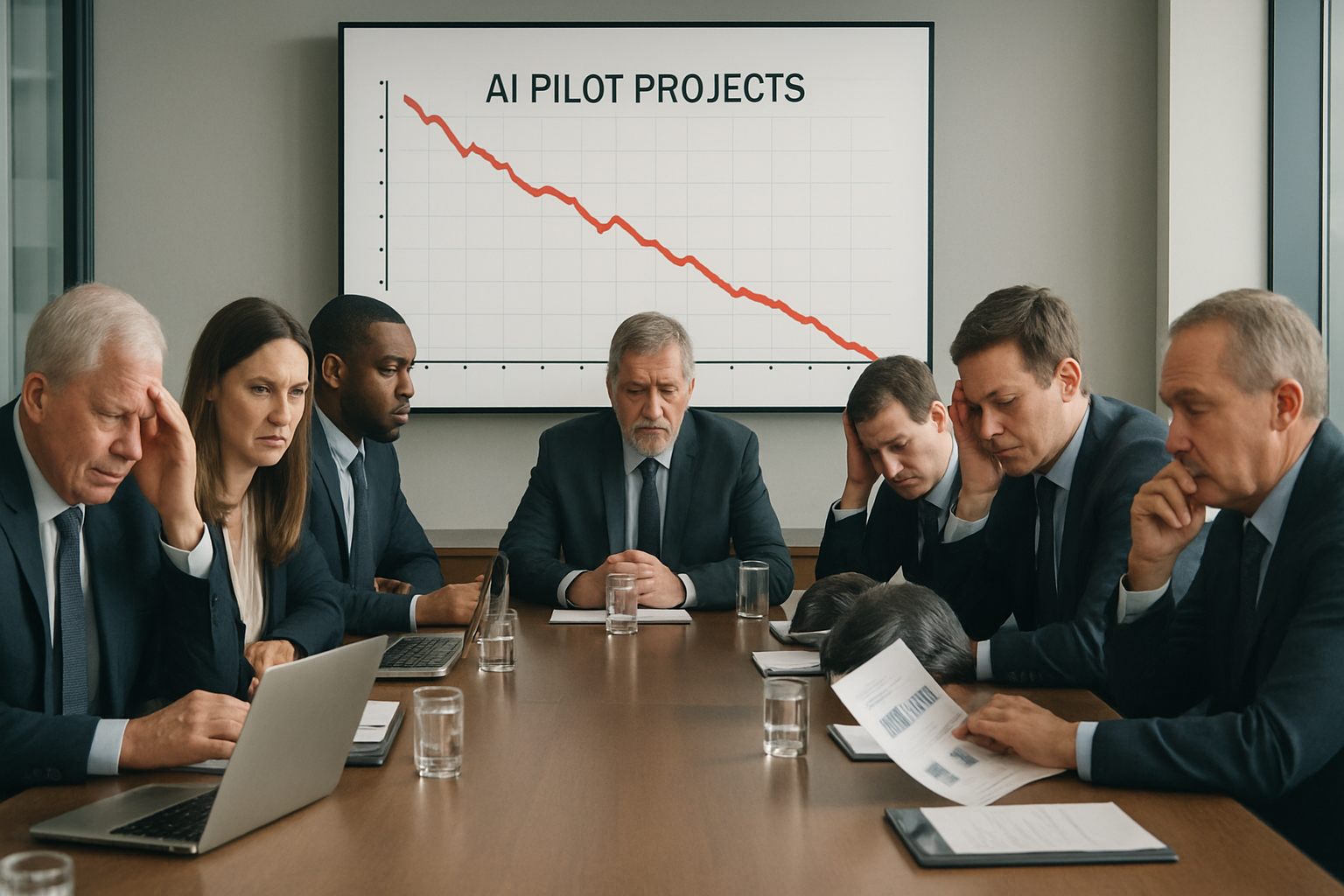Former President Donald Trump has found a new corporate executive to place in his crosshairs. This time, it's Intel CEO Pat Gelsinger who's been told to pack his bags, with Trump declaring him "highly CONFLICTED" and insisting there's "no other solution" but immediate resignation.
The timing couldn't be more awkward for Intel. The once-dominant chip giant has been struggling through what can only be described as an extended corporate nightmare. I've followed Intel's decline for years, and it's been painful to watch – the company recently announced plans to slash 15% of its workforce after reporting truly dismal quarterly results. Their stock plummeted nearly 30% in a single day last month. Ouch.
And now... this.
Having covered the intersection of politics and tech for over a decade, I've noticed a pattern in these corporate-political dustups. They typically involve three elements: immediate political gain, actual corporate issues, and broader economic context. The Intel situation checks all these boxes.
What makes this particularly bizarre is the misalignment. Trump's demand comes just as Intel is trying to leverage the CHIPS Act – bipartisan legislation designed specifically to boost American semiconductor manufacturing. Isn't that supposed to align with Trump's "America First" agenda? Well, apparently not when the CEO has previously voiced support for government investment in domestic chip production.
Look, in today's political environment, even stating something as benign as "government support helps rebuild industries" can get you labeled as "CONFLICTED" (all-caps necessary, of course).
The market reaction tells its own story. Intel shares barely moved after Trump's outburst. Wall Street has essentially developed an immunity to political noise, applying what I call the "political outburst discount" – they've seen this movie before and know how it ends.
I spoke with several semiconductor analysts yesterday who confirmed my suspicion: investors are far more concerned with Intel's execution problems than with political pronouncements. One analyst (who requested anonymity because, well, who wants to get caught in this crossfire?) put it bluntly: "If investors panicked every time a politician demanded someone's resignation, we'd need sedatives instead of Bloomberg terminals."
The semiconductor industry presents a fascinating case study in how national priorities can shift. For decades, America was perfectly comfortable with the globalization of chip manufacturing – until suddenly, it wasn't. The pandemic-induced chip shortage (remember trying to buy a PlayStation in 2021?) combined with growing China tensions transformed boring silicon wafers into matters of national security overnight.
This shift has created some... unusual political alignments. Democrats embracing industrial policy? Republicans supporting government subsidies? CEOs who once worshipped at the altar of free markets now practically begging for government support?
Politics makes strange bedfellows, as they say.
What Intel's struggles really highlight isn't political conflict but the brutal reality of semiconductor manufacturing. It's insanely difficult, ridiculously expensive, and increasingly competitive. TSMC didn't become the world's dominant chipmaker through tweets or political favor – they did it through decades of relentless execution and laser focus.
(Side note: I toured TSMC's facilities in Taiwan back in 2019, and the precision required for modern chip manufacturing is mind-boggling – we're talking about structures measured in single-digit nanometers. For perspective, a human hair is about 75,000 nanometers wide. Politics can't help you at that scale.)
The irony here? If Trump genuinely wants American chip manufacturing dominance, Intel's leadership issues need thoughtful resolution, not hasty resignation demands. Corporate turnarounds in complex manufacturing businesses typically require strategic patience – not exactly a common trait in our political discourse.
For investors watching this drama unfold, the real question isn't whether Gelsinger will resign based on a social media post (he won't), but whether Intel can execute the painful restructuring needed to regain competitive footing.
Meanwhile, semiconductor equipment manufacturers like ASML, Applied Materials, and Lam Research continue quietly raking in profits from the global chip race – selling the high-tech equivalent of picks and shovels to every company desperate to improve their manufacturing capabilities.
I suppose the lesson here is that while politics and business inevitably collide, semiconductor physics remains stubbornly indifferent to ALL-CAPS declarations. Taiwan Semiconductor didn't become the world's most advanced chipmaker through political favor but through relentless execution against an unforgiving technology roadmap.
And that's what will determine Intel's fate – not whether its CEO passes some political loyalty test.




